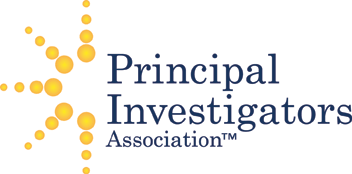|
Communicating your work effectively is the cornerstone of success in science. Whether you are giving an in-house Works in Progress or an International Investigator Award talk, how you organize and present your information can influence how your audience perceives your work. Inside this Webinar pack you will receive 2 best-selling webinars presented by an award-winning speaker. Through this educational pack you will learn what should be included in a successful presentation as well as advanced techniques to help you achieve winning results. Each Webinar is 60 minutes long. You may choose your preferred format: CD-Rom, MP4 or PDF Transcript. BONUS OFFER EXTENDED: Order your Webinar pack by Oct. 31st for only |
|
Award Winning Communications for Scientists: Oral Presentations That Work (a $197 value) 60 Minute On-Demand Webinar. Available in CD, MP4 or PDF Transcript. During this insightful Webinar, your expert presenter will highlight the key steps and practical tips you can apply to become a successful presenter at regional and national scientific conferences. A standard meeting approach will also be discussed that will enliven your presentation, engaging your audience and making you a hit. Additionally, ten key tips will be provided, that when followed will make you a success at conference presentations! 5 Key Take-Aways:
Who Should Attend: Anyone presenting their findings at a local, regional or national show or conference. This could include graduate and post-doctoral students and researchers, principal investigators and project administrators. |
|
|
|
|
How to Give an Award Winning Data Rich Presentation 60 Minute On-Demand Webinar. Available in CD, MP4 or PDF Transcript. During this interactive Webinar your expert presenter will explore how scientists can effectively present data and results in an exciting, convincing manner. This session will empower the participant to seek new and interesting ways to present charts, graphs, and results while telling a story that ties the many parts together. Several opportunities for audience involvement are included. Walk away with several expert techniques to enliven talks, engage audiences, and make your presentation a hit! 5 Key Take-Aways:
Who Should Attend: Scientists and other thought leaders who must effectively present data, results, and proposals to funding agencies, to scientists at national meetings, and to peer groups. |
|
|
|
BONUS Live Webinar: How to Design a High-Impact PowerPoint Presentation: Insider Secrets to Make You Shine (an $89 value, yours free!) 45 Minute LIVE Webinar on Thursday, Oct. 3rd at 1PM EST. If you are unable to attend the Live event, you may also choose either CD-Rom or MP4. In this detail-oriented Webinar, we will explore the aspects of developing content aimed at producing PowerPoint slides that are properly formatted to achieve high-impact results. Several best practices are presented for differentiating your presentation from others. Implementing these suggestions about design, use of bullets, slide count, as well as proper referencing will communicate your message memorably and effectively. 5 Key Take-Aways:
Who Should Attend: Any who must develop and deliver compelling and effective presentations using PowerPoint. PIs, post-docs, and graduate students presenting data-rich content at any type of event, from national meetings to group project review meetings, will benefit from this presentation. |
|
|
||
|
Meet Your Presenter:
|
||
|
|
|
|
This educational pack is brought to you as a training tool by the Principal Investigators Association, which is an independent organization. The information presented and its contents are not connected with the National Institutes of Health (NIH) or the National Science Foundation (NSF), nor are they endorsed by these agencies. All views expressed are those personally held by the author and are not official government policies or opinions. |








